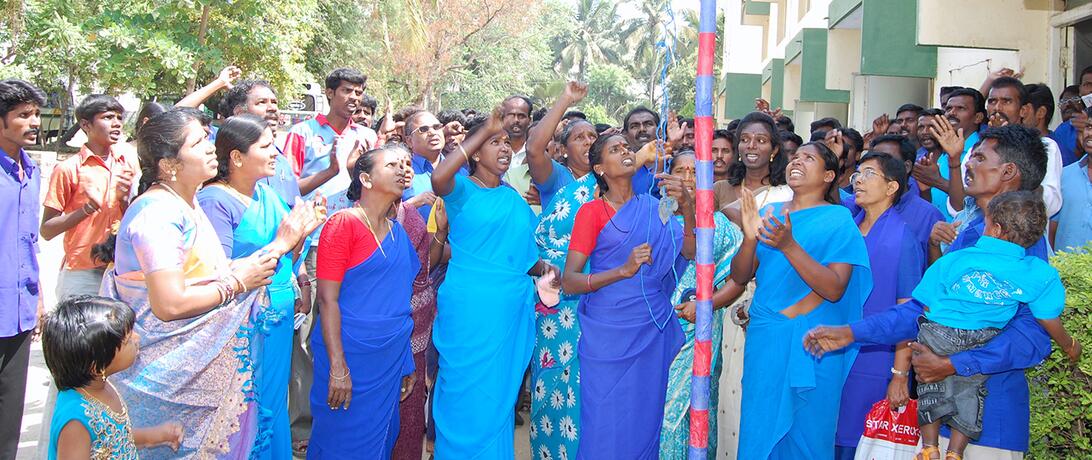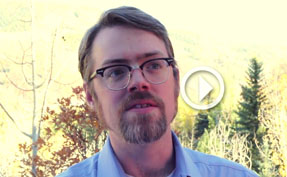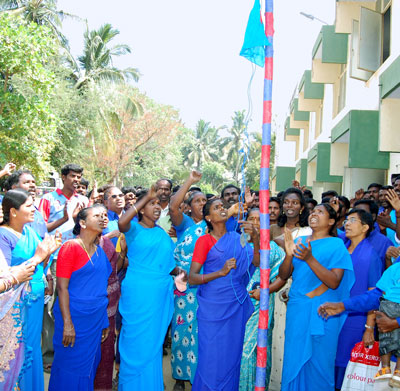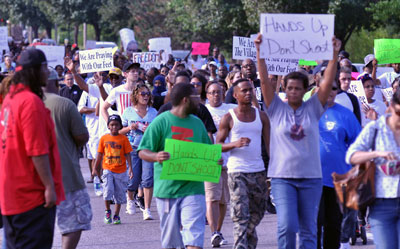
There are many questions we need to wrestle with if we want to seriously take on achieving a world beyond war. These are the central questions OEF asked a forum of global thought leaders to deliberate.
 Will we be able to achieve a world without war? Will we be able to do it in this century?
Will we be able to achieve a world without war? Will we be able to do it in this century?
This question instantly raises a host of others, such as how do we define a peaceful world? What’s our track record so far? What has supported positive trends and what obstacles are in our way?
These are the questions we need to wrestle with if we want to seriously take on achieving a world beyond war, and are the central questions OEF asked a forum of global thought leaders to deliberate. Their thoughts are captured in our interview series and encapsulate themes ranging from strengthening global institutions to sustaining a social movement.
Our Deputy Director of Research is Conor Seyle, a political psychologist who has been researching trends in armed conflict. For his part, he reminds us that worldwide violence has already been on steady decline, so furthering some of the practices that have helped this along (economic development, women’s empowerment, improved education) is bound to continue that trend.
However, he asks, what will it mean to bring us from a more peaceful world to a world entirely without war?
No one involved in the discussion has been under the delusion that violence will be eradicated completely, nor indeed that taking part in and initiating nonviolent conflict isn’t a crucial method for engaging injustices. What we do have on the table for serious discussion is the possibility of a world that no longer engages in warfare as viable resort.
Defining “war” and “armed conflict” can be a contested matter, as well as what distinguishes one from the other. By Uppsala University’s definition, 1,000 battle deaths resulting from a conflict in one year constitutes a war (as opposed to 25 battle-related deaths for an armed conflict) so any fewer would mean we have achieved a peaceful world.
 “Are we willing to make that commitment?” asks Conor. “Are we, as a society, as a globe, ready to take that step and say, ‘this is what we are willing to do, and we’re going to put the resources behind it’?” As evidenced by his statement, Conor, along with generally the rest of the Forum participants, is optimistic that a world beyond war is possible, given the right resources, conditions, and dedication.
“Are we willing to make that commitment?” asks Conor. “Are we, as a society, as a globe, ready to take that step and say, ‘this is what we are willing to do, and we’re going to put the resources behind it’?” As evidenced by his statement, Conor, along with generally the rest of the Forum participants, is optimistic that a world beyond war is possible, given the right resources, conditions, and dedication.
Empirically, as Conor says, we can link certain things to downward conflict trends, like increasing gender equality, the increased role of the UN, education levels, the rise in global prosperity. We also have plenty of evidence that norms on wars and violence have changed from the days of routine dueling, human sacrifice, slavery, wars between great powers. Unfortunately, the word “peace” itself has also acquired a certain utopic connotation, which may require a further norm change to bring it from an unattainable utopia to a practical and technical agenda.
Forum participants have weighed in on what activating those norm changes might require. In Conor’s words, “the first step is changing how we think about peace. It's understanding that the trends are going in the right direction, and peace is not a crazy idea, or an idealistic idea, or a quixotic idea.” And while there may have been changes in the way the world perceives war, he points out that complacency is not the way to go. Contexts can become far less favorable (i.e. increased pressure on natural resources), and potential backsliding on those norms (i.e. annexing portions of countries by military force as in Crimea) is ever-present. Peace is achievable only if “we make sure that we reify the gains that we've made - that we make them real by increasing the resources that we've got devoted to the issues that drive conflict.”
I’d maintain that among those resources would be more research and discussion in the area of inequality and perceptions of unfairness, an issue touched upon by Forum participant Charles Stith. The case is not closed on just how these things might relate to conflict. What would conclusive findings mean for governance? As OEF researcher Lindsay Heger wrote, we see by example in our own lives aggrieved people wanting to fight, but there isn’t conclusive evidence to support directly linking inequality or grievances to conflict. There are data collection challenges in fragile states, studies are conducted with unsuitable levels of analysis, or only consider one kind of inequality. Where the Gini Coefficient fails to explain links to conflict, how else can we empirically analyze complex inequalities and grievances?
 Researchers have begun exploring some aspects of this problem, including the “greed vs grievance” debate and how inequalities between and within groups relate to conflict (see, for example Stewart, Koubi, Cramer). But calculating economic inequalities is not necessarily the same as quantifying sentiments of injustice. Sentiments are extremely complex and evolving, but there are ambitious projects like the World Values Survey that attempt to capture and analyze them. And we can see in areas like poverty that people are developing more nuanced, multidimensional ways to measure.
Researchers have begun exploring some aspects of this problem, including the “greed vs grievance” debate and how inequalities between and within groups relate to conflict (see, for example Stewart, Koubi, Cramer). But calculating economic inequalities is not necessarily the same as quantifying sentiments of injustice. Sentiments are extremely complex and evolving, but there are ambitious projects like the World Values Survey that attempt to capture and analyze them. And we can see in areas like poverty that people are developing more nuanced, multidimensional ways to measure.
We don’t have all the data yet, and we definitely don’t have all the answers. But we have enough to know that focusing on peace as a serious discussion is more realistic than ever before.
Article Details
Published
Written by
Topic
Program
Content Type
Opinion & Insights